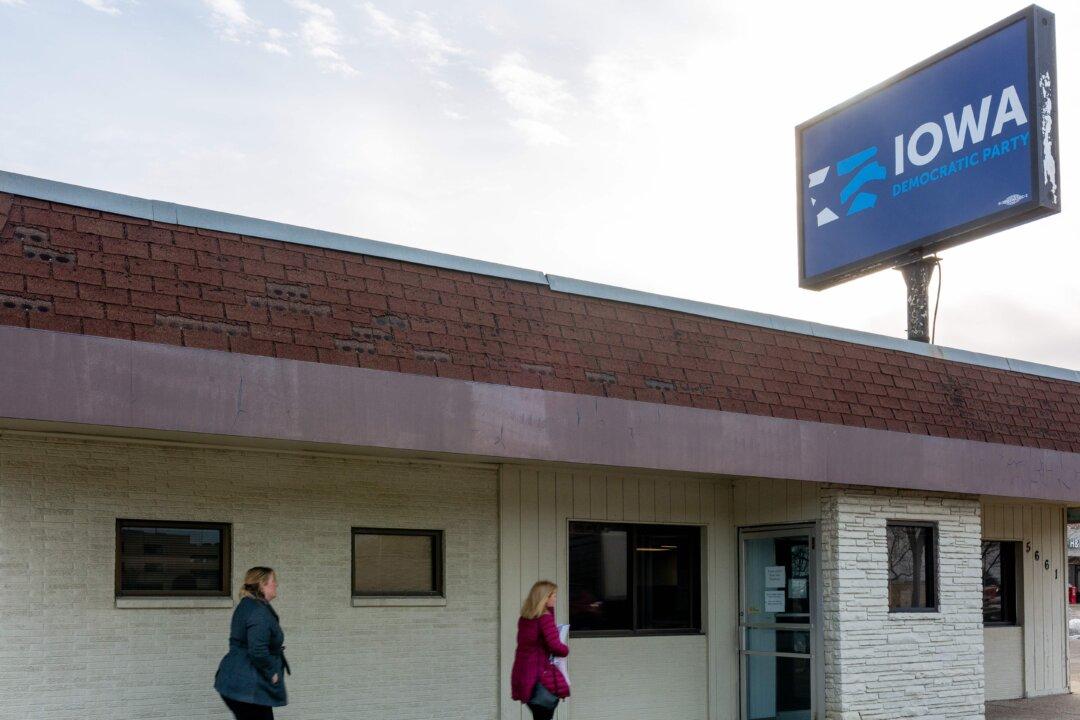Iowa Democrats on Feb. 4 began to release some of the long-delayed results from Iowa’s chaotic Democratic Party caucuses, with former South Bend, Indiana, Mayor Pete Buttigieg leading the pack in a close race.
More than 21 hours after Iowans gathered on Feb. 3 to pick a candidate, the Democrats reported results from 62 percent of precincts, showing Buttigieg leading with 26.9 percent of the state’s delegate count. Sen. Bernie Sanders (I-Vt.) had 25.1 percent, followed by Sen. Elizabeth Warren (D-Mass.) and former Vice President Joe Biden with 18.3 percent and 15.6 percent, respectively.





